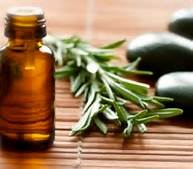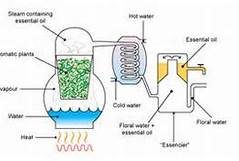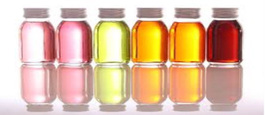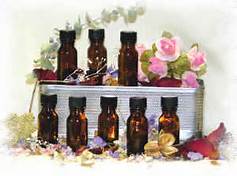
Would you be offended ???
if a company tried to hijack the healing miracles Jesus performed by the power of God to sell their product? Try this statement on for size and see how it fits: “Even Jesus used essential oils in His healing ministry. “ Offensive. Untrue. To me, truly despicable.
I’ll get back to that…But 1st, lets expose some myths that you might have heard from various representatives from MLM essential oil companies. Everyone that is in the market to buy oils wants to make sure they get a quality product that will work, but can you really trust what you hear???:
1. Only our oils are the best.
This is something that people are told by the company they represent. This is ridiculous. Essential oils contain special properties called active constituents. These properties carry out the intended action of the plant. It is rare to find an oil so badly produced or impure that it doesn’t actually work the way it should, and I will go over how to avoid such oils later in this post.
2. Other’s oils have gases added to keep the shelf life.
This one was actually something that someone posted on a poll on my facebook page. This is not true. I will explain how essential oils are actually made and why some are extracted using a gas. This gas helps extract the oil from certain plants, but is not actually in the essential oil after it is produced. They are not added to keep shelf life, and are not even in the final product.
3. They are not that expensive.
I will show you a price comparison in this post. When you actually know what essential oils should cost, this is clearly a myth.
4. Ours are safe to use undiluted (even on infants) and internally.
All pure essential oils are safe to use IF YOU KNOW HOW. This includes undiluted (referred to as “neat”) and internally, but these applications depend on the oil. I don’t care who makes the oil, there are some that are unsafe to use neat, internally, or even around certain people. This is not because the oils are low quality, it is because they are HIGH quality – meaning they have the active constituents they are supposed to in order to be therapeutic. Using essential oils neat on an infant should almost NEVER be done. Oils are only as safe as the amount of education possessed by the person administering them. Many oil reps are trained by the company for which they are selling oils. They mean well and they want the best for their customers, but it is not a company’s job to educate it’s distributors, it is their job to sell astronomical amounts of their product. From the reps I have spoken to, it is often even dangerous to use essential oils based on their advice.
5. Our oils come from the best farms and have the best manufacturing procedures.
This is something that only a company will boast about. Companies indoctrinate their sellers on their procedures and ingrain into them why and how they are different from the others. When it all boils down to it, there usually is very little difference, and what is actually different is not always as good as they make it sound. I will go into more detail about this and explain why I don’t say this lightly. One example is a certain company boasts that it owns all of their farms. Most of these farms are in the United States, but in order to get the best quality oil, it should come from the part of the world that it is indigenous to or grows the best in. That is how it gets the highest level of active constituents.

What is Aromatherapy? Essential Oils?... and how are they made?
The most accurate definition I can find is this: Aromatherapy is a branch of herbalism which uses essential oils for therapeutic purposes. Essential oils are extremely concentrated substances, also called volatile oils, which have complex chemical structures and contain many active constituents responsible for carrying out therapeutic actions on the body.
Aromatherapy, contrary to how the name sounds, actually has very little to do with smell. Aromatherapy is termed because one of the ways that the components of the essential oils enter the body is through the olfactory nerves in the nose going directly to the brain. The oils are highly volatile, making them extremely odorous, but how they smell is secondary to their purpose. They smell like the plant they were derived from. They also enter the blood stream through topical application on the skin, and sometimes taken orally. Oils are chosen by a skilled aromatherapist or herbalist based on their chemical components and desired effect, such as anti-inflammatory or anti-septic.
There are a few ways the essential oils are obtained from the plants and this process requires specialized equipment. Each method has a valuable place in the making of essential oils as some plants yield better results with one method over another. The most common way is by steam distillation. This method is most effective for most plants and the most commonly used overall. There is also cold-pressed, used primarily for citrus plants which have a very high yield and are easily extracted. Third, there is CO2 distillation and supercritical CO2 extraction. These methods are important because they allow the plants to be processed at lower temperatures while giving a higher yield (for many plants, but not all). In CO2 distillation, the end product has no CO2 left behind as it evaporates and you are left with a very pure product which is also very accurate to the original plant state because of the low temperature. Finally, there are absolutes. There are a few plants which do not yield much oil to steam distillation and are extremely expensive to process because they have very low amounts of essential oil in them, such as rose and jasmine. These are often processed as absolutes and are technically not essential oils. They are about 50% essential oil and 50% wax or carrier oil, but still offer therapeutic results.
So what's with all the manufacturer’s hype about processing???
So now that you know how oils are actually produced, why do companies boast with all their might that THEY are in a league all their own because they process them differently? Well, there are some variations in how these processing methods can vary. Different plants need different temperatures and pressures to extract the most oil while keeping it the most true to the original plant. Unless you know what each plant needs (temp and pressure needs) asking company reps is well…futile. Even if you called the company to ask what temps their oils are processed at, they would likely sing you a song about how their unique practices make theirs the best, but each plant is different. So in all reality, they should be making adjustments in processing for each plant. Most companies source out their oils, do tests to ensure quality, and choose which they like the best. Some do process their own plants, but for me, as long as the end product gives me the results I want, it doesn't matter if “Bob” grows his own lavender and extracts the oil himself, or if “Jane” samples 30 different farms’ lavender oils and tests and investigates them and chooses which one she decides is best. When you take the labels off, they are suddenly on equal playing field. I don't have anything against any oil companies oils, just some company politics, if you will. You might find that you like some oils from company A better than company B and other oils better from company B than company A. And that you might even like some oils even better from C and D.
If you were to do a blind study, sampling various oils from different companies and comparing your results while not being able to see the label, I doubt you choose the same company every time. You probably couldn’t even tell the difference for most oils. In fact, I set out a challenge on social media, having friends that represent different companies. And of course, they have friends that do the same…WOULD YOU BELIEVE NOT ONE person was willing to accept my challenge to a fun little blind experiment??? I was very disappointed, I really wanted to be able to share the results in this post. But, I hope you are learning enough without it. ;)
Young Living doTerra Starwest
Lavender $33.22 $30.67 $7.83
Peppermint $28.29 $29.33 $6.33
Lemon $15.79 $14.67 $6.00
Clary Sage $66.78 $48.67 $12.42
Eucalyptus $20.07 $22.67 $5.17
Frankincense $103.29 $90.67 $7.08
Tea Tree $36.51 $28 $6.33
The only thing you really need are transparent, 3rd party tests on the websites. This should be standard and simple. Some companies boast at the number of levels deep they test. As long as they have all the info, that's all that matters: heavy metals, pesticides, molds, contaminants, solvents, purity, potency...
For many years I have used a wholesale brand. But when my company came out with a brand, all the documentation on the site showing perfect, highest quality attainable at prices that rivaled my wholesale prices, I was thrilled!
So what about the company I find offensive? The company I admit to dislike: Young Living, and for several reasons. Here are my ramblings on that…
First, that statement using Jesus for sales, yes, that was from Gary Young, the founder of Young Living. This statement was on their website years ago. I feel that the company (not the sales reps) take advantage of people by the way I observe sales and marketing strategies.Their sales reps are often trained by the company which seems to indoctrinate them with a lot of un-truths that they pass on to customers...they boast that YL oils are the only ones that are therapeutic grade, insisting that this is important to look for in an oil to ensure it’s quality. Do you know that YL actually has the term “therapeutic grade” trademarked? I am unaware if the reps even know this, and assuming the best about people choose to believe that they don't.
They also boast that their oils are the only ones recommended by the Center for Aromatherapy Research and Education. Really??? That would be pretty impressive...but wait...could that be because Gary Young owns the association? This is not some third party unbiased research foundation. I find that to be a very misleading business strategy to start a foundation with an impressive name that seems to only back your product, which happens to sell for astronomically high prices. And remember back in the beginning of this post when I uncovered some common myths? Well, the one about gases being added, that came from a YL sales associate. Could this company be falsely educating their in order to sell product? This is a great example of why people should be taught at a college, not a company, if they want a good education on essential oils.
Third: dangers. Gary Young developed Raindrop Technique. This is not only dangerous according to any well-educated aromatherapist, using essential oils in an unsafe manner but equally aggravating, it boasts benefits that are 100% false, including a cure for scoliosis. As an aromatherapist, advanced bodywork practitioner of 25 years and instructor, I can guarantee that there is no amount of oil that you can apply to the spine to correct true scoliosis. Here is a link to a great article explaining more on that. On the same page, there is a great link to some dangers, too. It was from YL sales associates that I have been told you can apply their oils directly to babies and could not be allergic to their oils. This is untrue and unsafe information.
The topic of essential oils can get heated fast...
It is interesting to me that like-minded individuals who use essential oils (not a very mainstream practice) can get so angry at each other over something beautiful they have in common…and worse yet, over something as trivial as what brand of product they use. I don’t exclude myself from this entirely. My husband can testify to how agitated I can get about Young Living when I encounter people boasting about it…and now you know why. And hopefully that is not the only thing you learned from this post.
Isn’t it ironic how volatile the topic of essential oils can be?
Summary: Essential oils are awesome. People that use in their business them should be trained...and NOT by a company, by a reputable school. :)
I challenge anyone that uses oils in their daily life to get a few books on the subject, NOT written by a company affiliate. Before using an oil, especially on a young person, check to make sure that you are using the best oil for the intended results and that there are no safety issues. Better yet, if you use them on a regular basis, I challenge you to take a class from a National Association for Holistic Aromatherapy (NAHA) and/or Alliance of International Aromatherapists (AIA) approved school.
Greater challenge: Anyone using essential oils in their business should be certified. While writing this post I did some research on schools to include for your benefit. You can learn at home, at your own pace and get certified in aromatherapy. I looked into some schools so that I could recommend one to the readers. I found a favorite! The coursework far exceeded that of others I read about... and the price is fantastic... you can become certified and qualified to use oils professionally. Not a bad investment in your business to keep your clients safe and get them the best results.
The topic of safety is so important. ..
I have actually known people that may have suffered serious damage from improper use of essential oils. Though the link was never traced back, I know that the people were using large amounts of oils highly contraindicated for their conditions. One example includes pre-term labor (at 26 weeks) and another case that may have lead to an aneurism. One of these people was trained, but poorly (a topic for another post).
The school I chose is West Coast Institute of Aromatherapy. I get nothing for the referral, I just like the program!
I am eager to hear your comments and engage on the topic of essential oils, aromatherapy, and herbalism!



 RSS Feed
RSS Feed